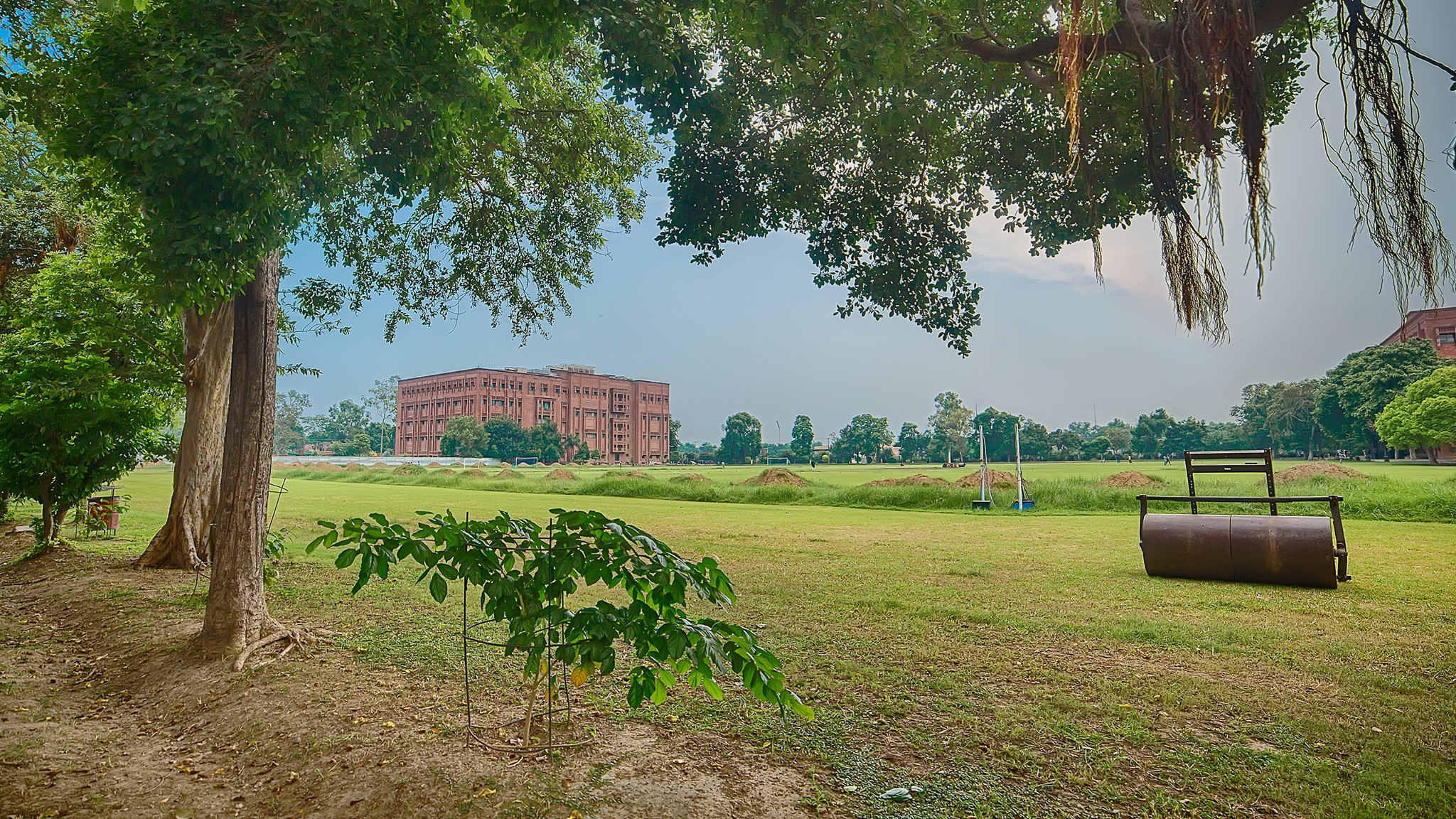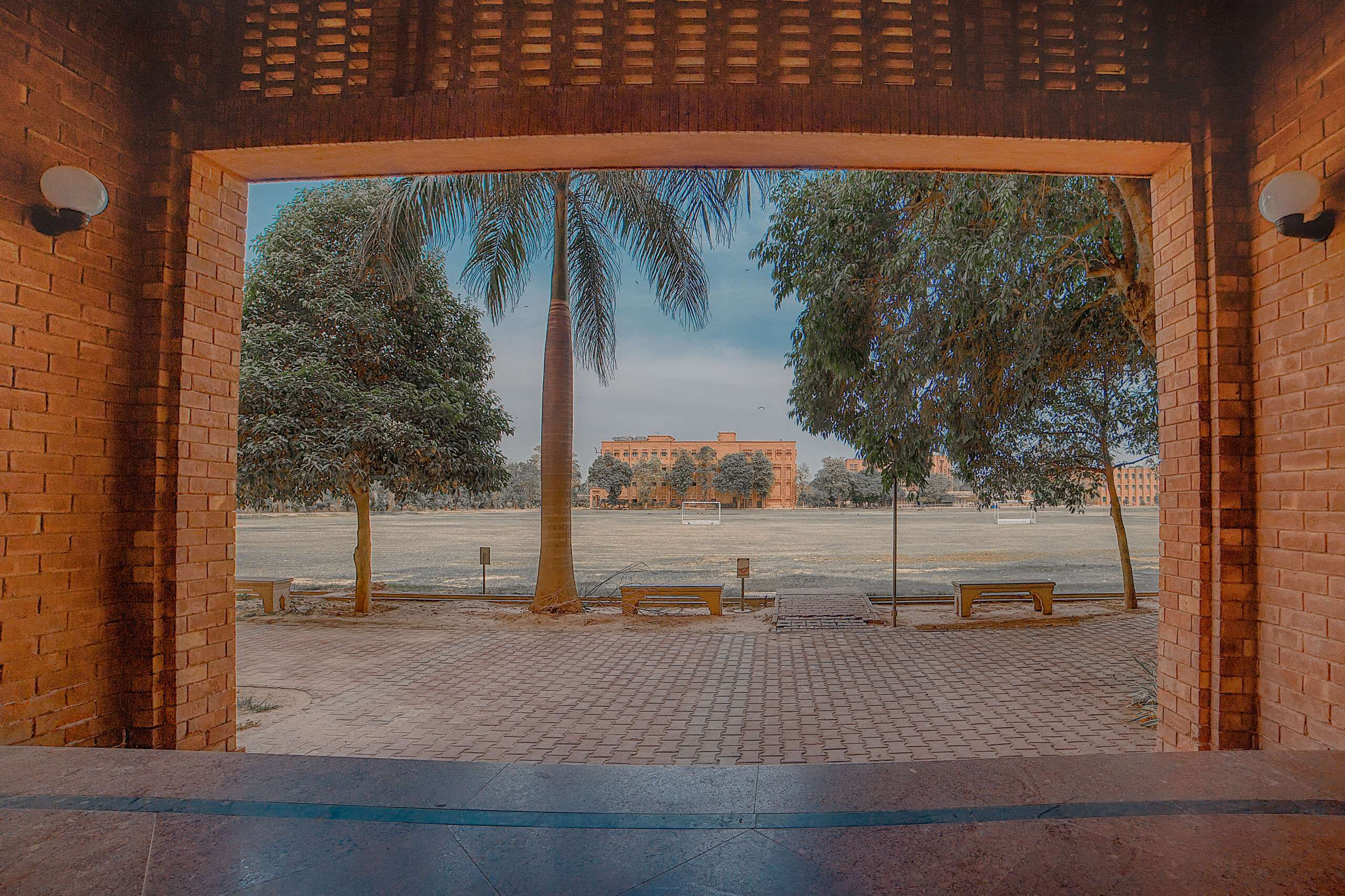International Conference on Soil Pollution and Remediation
Soil resources in Pakistan are at the risk because of the pressures of unprecedented rise in population, intensive agriculture, industrial expansions, unplanned urban sprawls, and mismanagement of solid and hazardous wastes. The 1st International Conference on Soil Pollution and Remediation (ICSPR) will be organized by Environmental Science Department of FCCU, Lahore during 15-16 March 2023 to understand various sources involved in anthropogenically induced soil pollution and will provide an opportunity for participants to learn and share the latest approaches for its sustainable remediation. The conference aims to provide a premier interdisciplinary platform to leading academic scientists, researchers, and environmentalists to exchange and share their experiences and research results on all aspects of soil pollution and remediation ensuring food security and environmental sustainability. The event will also provide valuable information for mitigating soil pollution by using clean and green technologies (conventional and nanoscale).
Scope:
We invite the participation of academic scientists, researchers, and scholars in the domain of soil pollution and remediation to submit original research contributions relating to following aspects:
| · Soil pollution and treatment | · Clean and green technologies |
| · Soil quality and health | · Soil remediation at nano scale |
| · Emerging contaminants in soils | · Constructed wetlands |
| · Drivers of soil pollution in land uses | · Public health issues |
| · Fate of soil pollutants | · Agricultural run-off and management |
| · Bioremediation techniques | · Phytoremediation of polluted soils |
Call for Contributions
Prospective authors are kindly encouraged to contribute through submissions of their research abstracts and papers in all areas of Soil Pollution and Remediation and are cordially invited for presentation at the conference.
Guidelines for Authors
Please ensure your submission meets the conference’s guidelines for abstracts.
Title: The title should be concise and clear
Mode of Presentation: Oral or Poster
Font style and size: Times New Roman, 12
Word Limit: 250 words
Submit your abstract: Registration Link
Or Scan the QR code:

Patron in Chief: Dr. Jonathan A. Addelton, Rector FCCU, Lahore
Patron: Dr. Derk Bakker, Assoc. Prof. & Chairperson, Department of Environmental Sciences, FCCU, Lahore
Focal person: Dr. Muhammad Shahbaz Akhtar (shahbazakhtar@fccollege.edu.pk)
Coordinator: Dr. Sohaib Aslam (sohaibaslam@fccollege.edu.pk)
| Local Organizing Committee | National/International Organizing Committee |
| Patron in Chief: Dr. Jonathan A. Addelton, Rector FCCU, Lahore
Patron: Dr. Derk Bakker, Assoc. Prof. & Chairperson, Department of Environmental Sciences, FCCU, Lahore Prof. Dr. Douglas Trimble, Vice Rector, FCCU, Lahore Prof. Dr. Hassan Ameer Shah, Dean of Natural Sciences, FCCU, Lahore Prof. Dr. Kauser Abdullah Malik, Director ORIC / Dean Postgraduate Studies, FCCU, Lahore Dr. Hamid Saeed, Professor Emeritus, Department of Environmental Sciences, FCCU, Lahore Dr. Shinho Chung, Associate Professor, Department of Environmental Sciences, FCCU, Lahore Dr. Mariya Rashida, Professor & Chairperson, Department of Chemistry, FCCU Dr. Khalid Javed, Chairperson & Associate Professor Department of Physics, FCCU Dr. Samina Mehnaz, Chairperson, KAM School of Life Sciences, FCCU Dr. Dildar Ahmad, Professor of Chemistry, FCCU Ms. Silvia Machado, Assistant Professor, Department of Environmental Sciences, FCCU, Lahore Dr. Shazia Ilyas, Assistant Professor, Department of Environmental Sciences, FCCU, Lahore Ms. Sumaira Akram, Lecturer, Department of Environmental Sciences, FCCU, Lahore Ms. Bushra Azhar, Senior Research Associate, Department of Environmental Sciences, FCCU, Lahore Mr. Zia ul Islam, Senior Research Associate, Department of Environmental Sciences, FCCU, Lahore Mr. Sikandar Altaf, Research Associate, Department of Environmental Sciences, FCCU, Lahore |
Prof. Dr. Javaid Akhtar, Vice Chancellor, University of Sahiwal
Prof. Dr. Muhammad Afzal, Vice Chancellor, Baba Guru Nanak University, Nankana Sahib Prof. Dr. Muhammad Tariq, Vice Chancellor, University of Narowal Dr. Oki Yoko-President Okayama Prefectural University, Japan Prof. Dr. Kauser Abdullah Malik, Director ORIC / Dean Postgraduate Studies, FCCU, Lahore Prof. Dr. Ghulam Murtaza Director, Institute of Soil and Environmental Sciences, UAF Prof. Dr. Muhammad Farooq, Sultan Qaboos University, Oman Prof. Dr. Muhammad Sajid Rashid, Principal College of Earth & Environmental Sciences, University of Punjab, Lahore Dr. Muhammad Arshad, Professor, Institute of Environmental Sciences and Engineering, NUST, Islamabad Dr. Mukkaram Ali Tahir, Associate Professor, Department of Soil & Environmental Sciences, University of Sargodha Dr. Babar Saeed, Assistant Professor, Texas State University, USA Dr. Yoshitaka Nakashima, Associate Professor, Okayama University, Japan Dr. Tariq Aziz, Associate Professor & Principal Sub-campus Depalpur, UAF Dr. Rab Nawaz, Associate Professor & Chairperson, University of Lahore Dr. Zia ur Rehman, Associate Professor, Institute of Soil and Environmental Sciences, UAF Dr. Abdul Wakeel, Associate Professor, Institute of Soil and Environmental Sciences, UAF Dr. Muhammad Sabir, Associate Professor, Institute of Soil and Environmental Sciences, UAF Dr. Saif Ullah, Associate Professor, Institute of Soil and Environmental Sciences, UAF Dr. Wajid Nasim Jatoi, Associate Professor, The Islamia University of Bahawalpur, Bahawalpur Dr. Kashif ur Rehman, Chairperson, University of Veterinary and Animal Sciences, Lahore Dr. Naeem Shahid, Research Scientist, Helmohz Center for Environmental Sciences – UFZ, Leipzig, Germany Dr. Muhammad Tahir, Senior researcher, Department of soil, water and climate, University of Minnesota, USA Dr. Muhammad Arif, Associate Professor, Bahauddin Zakariya University, Multan Dr. Allah Ditta, Associate Professor, Shaheed Benazir Bhutto University, Upper Dir |
| Soil pollution and treatment | Clean and green technologies |
| Soil quality and health | Soil remediation at nano scale |
| Emerging contaminants in soils | Constructed wetlands |
| Drivers of soil pollution in land uses | Public health issues |
| Fate of soil pollutants | Agricultural run-off and management |
| Bioremediation techniques | Phytoremediation of polluted soils |
| Abstracts Submission Deadline | March 07, 2023 |
| Notification of Acceptance | March 9, 2023 |
| Early Bird Registration Deadline | March 8, 2023 |
| Conference Dates | March 15-16, 2023 |
| Participation Type | Early Registration Fee | Registration Fees |
| Student | 1000 PKR | 1500 PKR |
| Faculty | 1500 PKR | 2000 PKR |
| Others | 2000 PKR | 3000 PKR |
| Foreigners | 80 USD | 100 USD |
BANK NAME HABIB BANK LIMITED
BRANCH F.C COLLEGE UNIVERSITY, LAHORE
ACCOUNT NO 2361-70000232-01
ACCOUNT TITLE FORMAN CHRISTIAN COLLEGE
IBAN # PK86 HABB 0023617000023201
SWIFT CODE HABBPKKA
CURRENCY PAKISTANI RUPEE
Evidence of transfer should be shared with Ms. Deborah (233731996@formanite.
 Forman Christian College was founded in 1864 by Dr Charles W Forman, a Presbyterian missionary from the USA. The college was initially known as the Lahore Mission College, but in 1894 the name was officially changed to Forman Christian College in honor of the founder. In the early years, degrees were awarded through the Calcutta University. College level instruction was interrupted in 1869 due to the illness of key faculty members. College classes resumed in 1886, with degrees being awarded through the University of the Punjab. In 2004, FCCU became a chartered University and from 2009 onwards has awarded its own degrees.
Forman Christian College was founded in 1864 by Dr Charles W Forman, a Presbyterian missionary from the USA. The college was initially known as the Lahore Mission College, but in 1894 the name was officially changed to Forman Christian College in honor of the founder. In the early years, degrees were awarded through the Calcutta University. College level instruction was interrupted in 1869 due to the illness of key faculty members. College classes resumed in 1886, with degrees being awarded through the University of the Punjab. In 2004, FCCU became a chartered University and from 2009 onwards has awarded its own degrees.
The early years of the college were marked by rapid growth in enrollment, and a constant struggle to find enough space to house the growing college. Enrollment grew from 18 students in 1886 to 130 in 1890, 311 in 1900, 426 in 1910 and 600 in 1915. Enrollment had reached 1,500 students by the time the college was nationalized in 1972. The campus was in the Anarkali (Nila Gumbad) area of Lahore for many years. Four major buildings were constructed by the college on that campus by 1916, and Ewing Hall, built in 1916, is still used as a hostel by the college. In 1940 the college moved to its present spacious campus of over 100 acres on the scenic banks of Lahore Canal.

In 1972 the college was nationalized by the government. It was returned to the present owners of the college on 19 March 2003. In March 2004, the government granted University status to FCCU. The University embarked upon an exciting new stage in its history in September 2005 when it began a four-year Baccalaureate (Honors) program designed in accordance with world-class standards for accreditation.
FCCU has been served by many distinguished educational leaders and teachers throughout its history who have impacted the lives of students and shaped the future of the college through the years. Under their leadership, the college became widely regarded as one of the very best in the entire subcontinent.
For many decades, FCCU has been widely recognized for its meritorious work of nurturing and consolidating the social and intellectual capital of Pakistan. The FCCU motto, “By love serve one another,” has been a guiding principle for Formanites throughout the history of the college. Among the graduates of the college are two Presidents of Pakistan, a Prime Minister of India, the first Chief Justice of Pakistan, a number of Governors and Chief Ministers of the Punjab and other provinces, an Attorney General of Pakistan, two Foreign Ministers of Pakistan, a President of the Security Council of the United Nations, numerous Ambassadors to other nations, a Chairman of the Atomic Energy Commission, a Chairman of the Senate, several Speakers of the National Assembly, numerous Generals and Admirals and an equally impressive list of leaders in the fields of education, law, medicine, arts and entertainment.
FCCU has been a leader for the development of curriculum among the universities of Pakistan. Through the years the college introduced into the curriculum such subjects as the Sciences, Economics, Psychology, Geography, Technical Chemistry and Sociology. FCCU is the first college in the subcontinent in whose laboratories research work of Nobel Prize caliber was conducted and Dr Arthur Compton received the Nobel Prize in 1932 for research conducted, in large part, at FCCU. In 1902, the college was the first college in the Punjab to admit women.
FCCU has been a pioneer in many fields. We were the first college in the region to form a Graduates’ Association (1896), open a Biology department (1898), adopt Co-education (1902), open a Technical Chemistry department (1919), and start Geography classes (1924).
Our innovative ideas are applicable to this day.
Academic excellence and the preparation of leaders who understand the value of service have been the hallmarks of education at the institution since its inception. One of the premier colleges of the subcontinent, FCCU has distinguished itself through its remarkable graduates and the achievements of its faculty. It has built a reputation for providing outstanding education with innovation and pioneering work in its curriculum, admission policies, a range of extracurricular activities, and the rigor of its academic programs.
FCCU is an HEC-recognized, W-category University. It currently has over 7,000 students, over 250 full-time faculty members with over 100 PhDs, and over 22,000 registered alumni. The University offers Baccalaureate and Postgraduate programs. The 4-year Baccalaureate Honors program, started in 2005, offers an American style, world-class liberal arts education. New postgraduate programs started with the MBA in 2007 and now include PhDs, MPhils, Masters and Executive education programs in specific disciplines. FCCU’s generous financial aid program and scholarships for deserving students make high-quality education accessible to students from various socioeconomic backgrounds.

Lahore houses several historical places like Badshahi Mosque, Lahore Fort, Greater Iqbal Park and several food streets. The Walled City of Lahore was renovated in 2014 and the fort along with the Shalimar Gardens has been a UNESCO World Heritage Site since 1981.
The city is home to several ancient religious sites including prominent Hindu temples, the Krishna Temple and Valmiki Mandir. The Samadhi of Ranjit Singh, also located near the Walled City, houses the funerary urns of the Sikh ruler Maharaja Ranjit Singh. The most prominent religious building is the Badshahi Mosque, constructed in 1673; it was the largest mosque in the world upon construction. Another popular site is the Wazir Khan Mosque, known for its extensive faience tile work and constructed in 1635.

Post Conference tour of the city will be organized for the participants.
